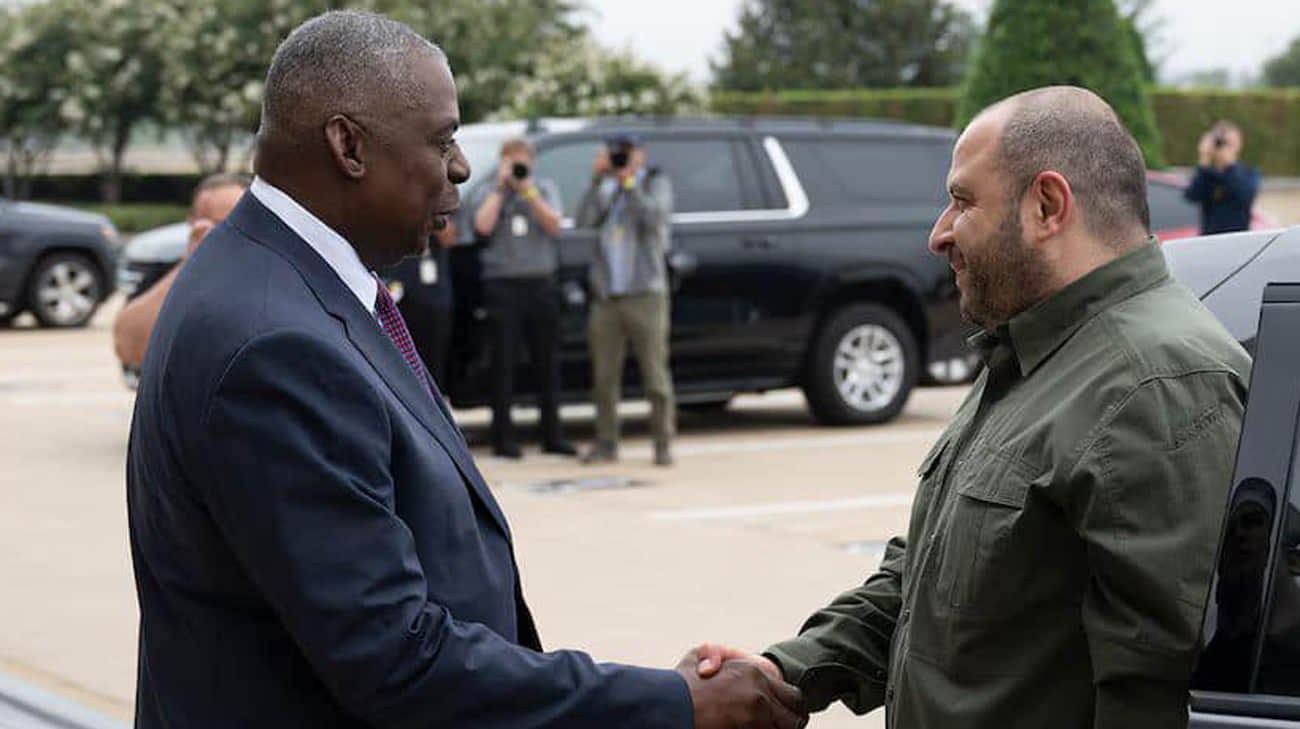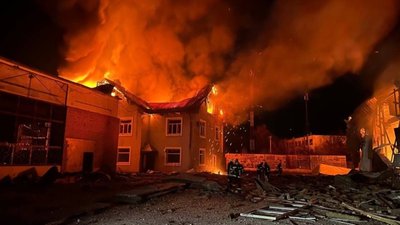Hur said Biden couldn’t recall when his son died. The interview transcript is more complicated
Follow AP for live coverage of Hur’s testimony. WASHINGTON (AP) — The White House knew it had a political problem on its hands when a special counsel report questioned President Joe Biden’s memory last month, but Biden saw a much more personal affront as well.Robert Hur, who had been appointed to investigate whether Biden mishandled classified documents, wrote that the president couldn’t recall in an interview with prosecutors the date when his adult son, Beau, died of cancer. It was a shocking contention about a keystone event in Biden’s life, and it fed into questions about whether the 81-year-old president is fit to serve another term.“How in the hell dare he raise that?” Biden angrily declared during a hastily arranged press conference after the report was released. “Frankly, when I was asked the question, I thought to myself it wasn’t any of their damn business.”The reality of the situation, however, isn’t as clear as either Biden or Hur portrayed, according to a transcript of the interview released on Tuesday before the former special counsel testifies on Capitol Hill. Hur didn’t ask the president about his son’s death; Biden brought it up himself during a discussion about how he stored documents at a rental home in Virginia after leaving the vice president’s office in 2017. And Biden recalled the specific date that Beau died, although he briefly wondered aloud about the year as the conversation toggled between various events. “What month did Beau die?” Biden mused. “Oh, God, May 30th.”A White House lawyer interjected by saying, “2015.”“Was it 2015 he had died?” Biden asked. When someone responded affirmatively, the president added, “It was 2015.”Biden aides defended the president’s inaccurate characterization of the interview during his press conference last month, describing his response as visceral and emotional. And they said his exchange with Hur showed how Biden believed it was important to reflect on how his son’s death had affected his decision making over subsequent years. The transcript released on Tuesday sheds new light on one of the most politically and personally sensitive episodes in Biden’s term. Although the special counsel’s investigation found no basis to bring criminal charges against Biden — unlike Donald Trump, who was indicted for refusing to return classified records to the federal government — the references to his memory threatened the president’s ability to assure voters that he can keep doing his job until he turns 86.Beau was Delaware’s attorney general and widely viewed as his father’s political heir when he was diagnosed with a brain tumor. The cancer, which Biden connects to his son’s National Guard service near toxic burn pits on military bases in Iraq, was devastating for a family that had already suffered tragedy decades earlier. Shortly after Biden was elected to the Senate in 1972, his first wife and baby daughter were killed in a car crash that also badly injured Beau and his younger brother Hunter.Beau died while Biden was serving as vice president, and his deep sorrow helped deter him from running for president in 2016, when Trump ultimately defeated Hillary Clinton. Biden mentioned the death during an interview that Hur conducted on Oct. 8. They were discussing where Biden kept documents that he was “actively working on” at his Virginia home. The president responded by skipping back a few years to talk about how “in this timeframe, my son is — either been deployed or is dying.”After the brief exchange about the specific date, Biden began to talk about writing his book, “Promise Me, Dad,” which was released in 2017.“This is personal,” he said as he talked about how “Beau was like my right arm and Hunt was my left.”Hur offered Biden a break at this point, but the president insisted on continuing with a lengthy story about his family. Biden said how Beau, after he was diagnosed with cancer, made him promise not to step away from public life.Biden decided “I couldn’t handle” another run for president but he would “stay involved.” However, in a story that Biden has frequently told at fundraisers, he changed course after the white supremacist rally in Charlottesville, Virginia, in 2017 and Trump’s response that there were “very fine people on both sides.” Biden said that he is “the antithesis” of everything that “this guy stood for” and “I could beat him.”As he wrapped up the story, Biden wondered aloud whether Hur needed such a lengthy answer.“Sorry for the detail,” Biden said.“No apology necessary,” Hur replied. ____ White House correspondent Zeke Miller contributed to this report.
Follow AP for live coverage of Hur’s testimony.
WASHINGTON (AP) — The White House knew it had a political problem on its hands when a special counsel report questioned President Joe Biden’s memory last month, but Biden saw a much more personal affront as well.
Robert Hur, who had been appointed to investigate whether Biden mishandled classified documents, wrote that the president couldn’t recall in an interview with prosecutors the date when his adult son, Beau, died of cancer. It was a shocking contention about a keystone event in Biden’s life, and it fed into questions about whether the 81-year-old president is fit to serve another term.
“How in the hell dare he raise that?” Biden angrily declared during a hastily arranged press conference after the report was released. “Frankly, when I was asked the question, I thought to myself it wasn’t any of their damn business.”
The reality of the situation, however, isn’t as clear as either Biden or Hur portrayed, according to a transcript of the interview released on Tuesday before the former special counsel testifies on Capitol Hill.
Hur didn’t ask the president about his son’s death; Biden brought it up himself during a discussion about how he stored documents at a rental home in Virginia after leaving the vice president’s office in 2017.
And Biden recalled the specific date that Beau died, although he briefly wondered aloud about the year as the conversation toggled between various events.
“What month did Beau die?” Biden mused. “Oh, God, May 30th.”
A White House lawyer interjected by saying, “2015.”
“Was it 2015 he had died?” Biden asked. When someone responded affirmatively, the president added, “It was 2015.”
Biden aides defended the president’s inaccurate characterization of the interview during his press conference last month, describing his response as visceral and emotional. And they said his exchange with Hur showed how Biden believed it was important to reflect on how his son’s death had affected his decision making over subsequent years.
The transcript released on Tuesday sheds new light on one of the most politically and personally sensitive episodes in Biden’s term. Although the special counsel’s investigation found no basis to bring criminal charges against Biden — unlike Donald Trump, who was indicted for refusing to return classified records to the federal government — the references to his memory threatened the president’s ability to assure voters that he can keep doing his job until he turns 86.
Beau was Delaware’s attorney general and widely viewed as his father’s political heir when he was diagnosed with a brain tumor. The cancer, which Biden connects to his son’s National Guard service near toxic burn pits on military bases in Iraq, was devastating for a family that had already suffered tragedy decades earlier. Shortly after Biden was elected to the Senate in 1972, his first wife and baby daughter were killed in a car crash that also badly injured Beau and his younger brother Hunter.
Beau died while Biden was serving as vice president, and his deep sorrow helped deter him from running for president in 2016, when Trump ultimately defeated Hillary Clinton.
Biden mentioned the death during an interview that Hur conducted on Oct. 8. They were discussing where Biden kept documents that he was “actively working on” at his Virginia home.
The president responded by skipping back a few years to talk about how “in this timeframe, my son is — either been deployed or is dying.”
After the brief exchange about the specific date, Biden began to talk about writing his book, “Promise Me, Dad,” which was released in 2017.
“This is personal,” he said as he talked about how “Beau was like my right arm and Hunt was my left.”
Hur offered Biden a break at this point, but the president insisted on continuing with a lengthy story about his family. Biden said how Beau, after he was diagnosed with cancer, made him promise not to step away from public life.
Biden decided “I couldn’t handle” another run for president but he would “stay involved.” However, in a story that Biden has frequently told at fundraisers, he changed course after the white supremacist rally in Charlottesville, Virginia, in 2017 and Trump’s response that there were “very fine people on both sides.”
Biden said that he is “the antithesis” of everything that “this guy stood for” and “I could beat him.”
As he wrapped up the story, Biden wondered aloud whether Hur needed such a lengthy answer.
“Sorry for the detail,” Biden said.
“No apology necessary,” Hur replied.
____ White House correspondent Zeke Miller contributed to this report.



